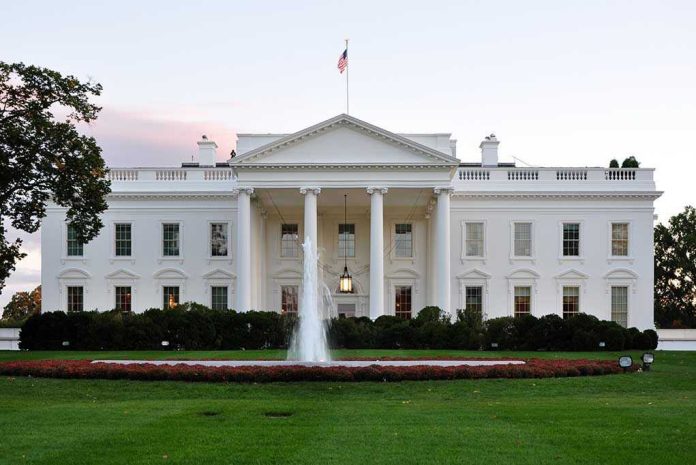
White House staffers admit that multiple pardons were granted using an autopen without President Biden personally reviewing or approving every recipient, raising new questions about presidential authority and accountability in the final hours before Trump’s return to office.
At a Glance
- More than 1,500 pardons and clemency decisions were signed by autopen in Biden’s last days as president.
- Biden stated he approved clemency criteria, but staff handled the signing and execution process.
- Republican lawmakers are leading investigations into the legitimacy and oversight of the mass pardons.
- This unprecedented use of autopen has ignited legal and political controversy over presidential accountability.
White House Staff Admit: Pardons Signed Without Biden’s Direct Review
Staffers in the waning days of the Biden administration have acknowledged that President Biden did not personally review or approve each of the more than 1,500 recipients of presidential clemency signed on his behalf. Instead, after a rush of last-minute decisions, staff used the autopen—a mechanical signature device—to execute what is now the largest mass pardon in U.S. history. This revelation comes as former President Trump’s return to office brings a renewed focus on accountability and transparency in the highest office. According to senior aides, Biden approved broad criteria for clemency, but did not individually review each case, delegating the entire process to his Chief of Staff and the Justice Department. This move, defended by the outgoing administration as a practical necessity, has fueled critics who see it as emblematic of everything wrong with bureaucratic overreach and the lack of direct presidential responsibility.
The use of the autopen has existed for decades, but never before has it been wielded at such scale, or under such contentious circumstances. While legal scholars argue that the device’s use is valid as long as the president authorizes it, the real question for millions of Americans is whether the commander-in-chief was meaningfully involved—or if, as many now suspect, the White House simply turned on the machine and let it rip, absent any real oversight or care for who would walk free.
Republican Lawmakers Launch Probes, Trump Calls Pardons ‘Void’
House Oversight Committee Chairman James Comer and his Republican colleagues have launched full-scale investigations into the Biden clemency process. They are demanding records, communications, and a full accounting of who actually made the decisions that led to the release or sentence reduction for thousands of federal convicts. The Justice Department has also been drawn into the fray, reviewing the procedures and ensuring that every legal requirement was met. Former President Trump, never one to mince words, has publicly declared the autopen-signed pardons “void,” arguing that the Constitution requires the president’s personal involvement in every act of clemency. While the courts have never invalidated a document for being signed by autopen—provided the president authorized it—critics insist the sheer scale of this “rubber-stamping” operation is a scandal of historic proportions. Congressional hearings are expected to stretch into the fall, as lawmakers seek to determine whether the White House crossed a line between efficient administration and total abdication of presidential duty.
Public and Legal Fallout: Was This Legal, or Just Politics as Usual?
Legal experts are divided on the long-term impact of the mass autopen pardons. On one hand, the law is clear: if the president authorizes the autopen, the signature is legally binding. On the other hand, the unprecedented scale and timing—mere hours before a new president took office—have cast a shadow over the legitimacy of the process. Supporters of the mass clemency effort argue that Biden’s approval of broad standards meets the constitutional requirement, and that the autopen is simply a tool for efficiency. Critics, however, say the move undermines faith in the pardon power and raises uncomfortable questions about presidential fitness and accountability. The controversy has energized conservative watchdogs, who see the episode as evidence of the need for reform, and it has reignited debates about the limits of executive power. In a time when Americans are already skeptical of government competence, the image of a mechanical pen freeing thousands—without a president even bothering to read the names—feels like the ultimate insult to those who believe in real leadership and constitutional accountability.
The fallout is not limited to the political arena. Families of both victims and convicts are left wondering whether justice was served—or simply mass-produced. Legal challenges may follow, as some seek to test whether a president truly fulfilled his constitutional duties by delegating them to a machine and a handful of aides. With midterm elections around the corner and the debate over executive power hotter than ever, this story is far from over. If nothing else, it’s a powerful reminder that in Washington, the buck doesn’t always stop with the man in the Oval Office—it might just stop with the nearest staffer and a well-oiled machine.




